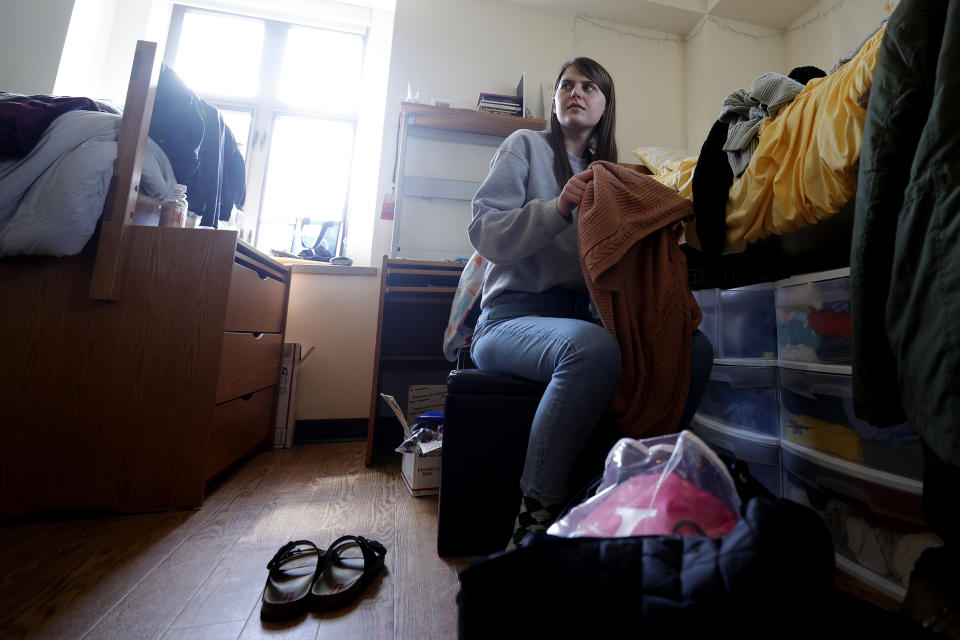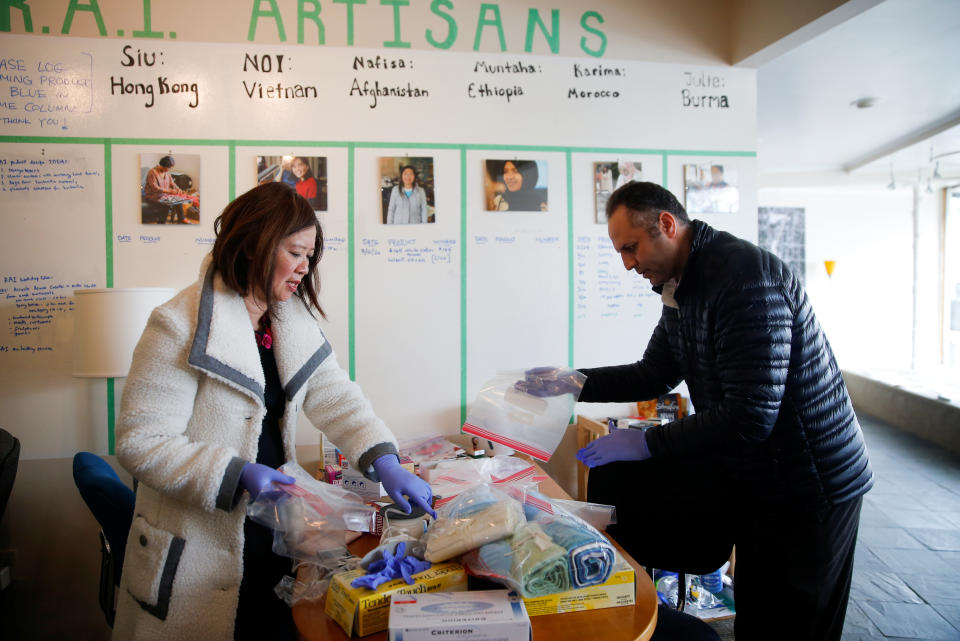Coronavirus stimulus checks: Here's who is left out
About 175 million Americans will receive stimulus checks up to $1,200 plus $500 for children, thanks to the $2 trillion relief package passed by Congress and signed by President Donald Trump on March 27.
The payments are designed to help Americans facing financial hardship, such as job loss, reduced hours, or a medical emergency related to the outbreak of COVID-19.
But not all those living in the U.S. will get relief. College students, parents with children of a certain age, undocumented immigrants and others have been left out of the bill.
Who won’t get the $1,200 stimulus check?
Single adults with income up to $75,000 and heads of household with income up to $112,500 will get a $1,200 payment. Married couples with income up to $150,000 will get $2,400. Here’s who won’t be getting a full check or any payment at all.
Higher earners
Reduced checks will be available for single adults who earn between $75,001 and $99,000 and married couples who earn between $150,001 and $198,000. The check will be reduced by $5 for every $100 over $75,000 for single adults and $150,000 for married couples. Those who make over those thresholds won’t get a payment.
College students
Twenty-one-year-old Brianie Cejour, a sophomore studying nursing at JFK Muhlenberg, won’t be getting a payment even though she was furloughed two weeks ago from her part-time sales associate job at a local Urban Outfitters. Because her parents claimed her as a dependent on their taxes, she remains unable to tap into the benefits of the stimulus bill.
“That’s something that college students can’t control,” said Cejour, who has $16,000 in student loans and would have used the $1,200 to pay those down. Ordinarily, the income she brought in paid for her school books and personal expenses such as gas and food.

“It would’ve been a weight lifted off of our shoulders, but now [I] have to resort to applying for unemployment,” she said. “God knows how long that’ll take to be processed and be approved for it.”
College students who were training to be teachers also have been left out. This semester, many were student teaching, but due to closure of many elementary, middle and high schools nationwide, they were left without a part-time job.
“They’re in this horrible limbo where they’re not working and didn’t file taxes because their parents are paying for their education,” said Lily Eskelsen García, president of the National Education Association, a national trade union.
Those with ITINs
Americans who don’t have Social Security numbers but instead file their taxes using an individual taxpayer identification number, or ITIN, are excluded from receiving a stimulus check.
“If an ITIN user files and they list a child who is a dependent who has a Social Security number everyone is denied,” said Betsy Fisher, director of strategy at the International Refugee Assistance Project. “The only exception is if this is a military family.”
The American Civil Liberties Union released a blog post last week highlighting this discrepancy.
“As a result, many immigrant workers are put in an increasingly difficult position, cut out of cash assistance and risking their health for essential work without even having access to testing and care,” said Manar Waheed, senior legislative and advocacy counsel.
Those who recently entered the U.S.
Refugees who have obtained authorized work status this year won’t receive a stimulus check right away, since the law is based on the 2019 tax filing. So far this year, 4,163 refugees have entered the U.S., according to the Refugee Processing Center.

“These people are eligible to get benefits but cannot file a 2019 tax return,” Fisher said. “ It's our understanding that they could get the money but not until they file their 2020 tax returns, which would be something like a year from now.”
Those who filed certain tax forms last year
If you filed one of the following forms in 2019, you are ineligible for the economic impact payment, according to the IRS:
Form 1040-NR: This is if you were a nonresident alien who did trade or business in the United States, or represented either a deceased person or trust that filed this form.
Form 1040NR-EZ: This is a form for nonresident aliens who do not have any dependents, and their income was mostly from wages, salaries, tips and grants.
Form 1040-PR: This is a form filed by those who are self-employed in Puerto Rico. It is used to calculate their income tax.
Form 1040-SS: This form is for residents of the U.S. Virgin Islands, Guam, American Samoa, the Northern Mariana Islands, and Puerto Rico who are not required to file a U.S. income tax return.
Who won’t get the $500 stimulus check for dependents?
Americans who qualify for the stimulus payment and have children will get an additional $500 per child under 17.
A group of Democratic senators introduced a legislative fix called the All Dependents Count Act, which would expand the definition of dependent, so more parents and caregivers could qualify for the $500 stimulus. Until then, here is who doesn’t qualify as a dependent.
Parents of high school juniors, seniors, and college students
While parents with children 16 and younger will get an additional $500 per child under the relief package, those with children 17 or 18 years of age won’t get additional assistance even if they are still living at home. Parents who still claim their children in college as dependents on their tax returns also don’t get the extra $500 payment.
Those with disabled or elderly adult dependents
Americans who have elderly relatives living with them who they financially support won’t qualify for the $500. Neither do Americans caring for disabled loved one.
“I don’t think it’s fair they don’t get these checks, ” said Ross Yellin, founder of Disability Allies, a nonprofit located in New Jersey. “I think those who have disabilities should get the same amount who are unemployed.”

New parents
While adults would get $500 for children 16 and under, this likely doesn’t apply to babies born in 2020 because the IRS is basing eligibility off of the 2019 tax return. However, new parents will be able to get the $500 payment when they file their 2020 tax returns next year.
Dhara Singh is a reporter at Cashay and Yahoo Money. Follow her on Twitter at @Dsinghx.
Read more:
This is why you can’t get that historically low mortgage rate
Mortgage refinances hit 11-year high as coronavirus fears send rates tumbling
Read the latest financial and business news from Yahoo Finance and Yahoo Money
Follow Yahoo Finance on Twitter, Facebook, Instagram, Flipboard, SmartNews, LinkedIn, YouTube, and reddit.

 money
money 